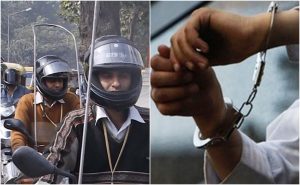ISLAMABAD (Staff Report) – The National Assembly on Thursday passed the controversial Prevention of Electronics Crimes Bill-2016 with majority votes while members of the opposition opposed its certain clauses.
The bill envisages 14-year imprisonment and Rs 5 million fine for cyber terrorism, seven-year imprisonment each for campaigning against innocent people on the internet, spreading hate material on the basis of ethnicity, religion and sector taking part in child pornography.
The Senate on July 29, 2016, passed this bill unanimously after detailed deliberations and incorporating several amendments proposed by the opposition. The bill will now become a law after asserting by the President.
State Minister for Information Technology and Telecommunication Anusha Rahman Khan presented the Prevention of Electronic Crimes Bill-2016 commonly known cybercrime bill in the House.
Speaking on the occasion, the Minister said, the bill was need of the hour as there was no comprehensive law related to prevention of electronics crimes in the country. Defending the bill, she said there was a dark side of the internet which had to be handled.
She said it was introduced during the regime of President Musharraf as an ordinance in 2007 while the PPP government also did the same through ordinance again in 2008-09 but it could not be converted it into a law.
She said the present government constituted a special committee which worked for two years with all stakeholders to make it a consensus law.
A number of public hearings were held on the bill and later that was approved by the committee of experts, she added. She said around three dozens of amendments of the opposition had been made part of the bill and added that it was now not a bill of the government but had become a bill of the Parliament.
The Minister came hard on members of the opposition for opposing the bill again, adding that members belonging to same opposition parties had already supported it in the Senate.
She said there were reservations of some people and organisations about the bill but certain amendments had been made in it after consultation with all the political parties so that no innocent person could be given punishment under the law.
The Minister said that after listening to all the stakeholders and recommendations of the Standing Committee had been included in the bill. She added that special courts would be set up for the hearing of these cases, however, she added that except for terrorism-related and taking part in child pornography crimes, no other person could be arrested without courts’ orders.











